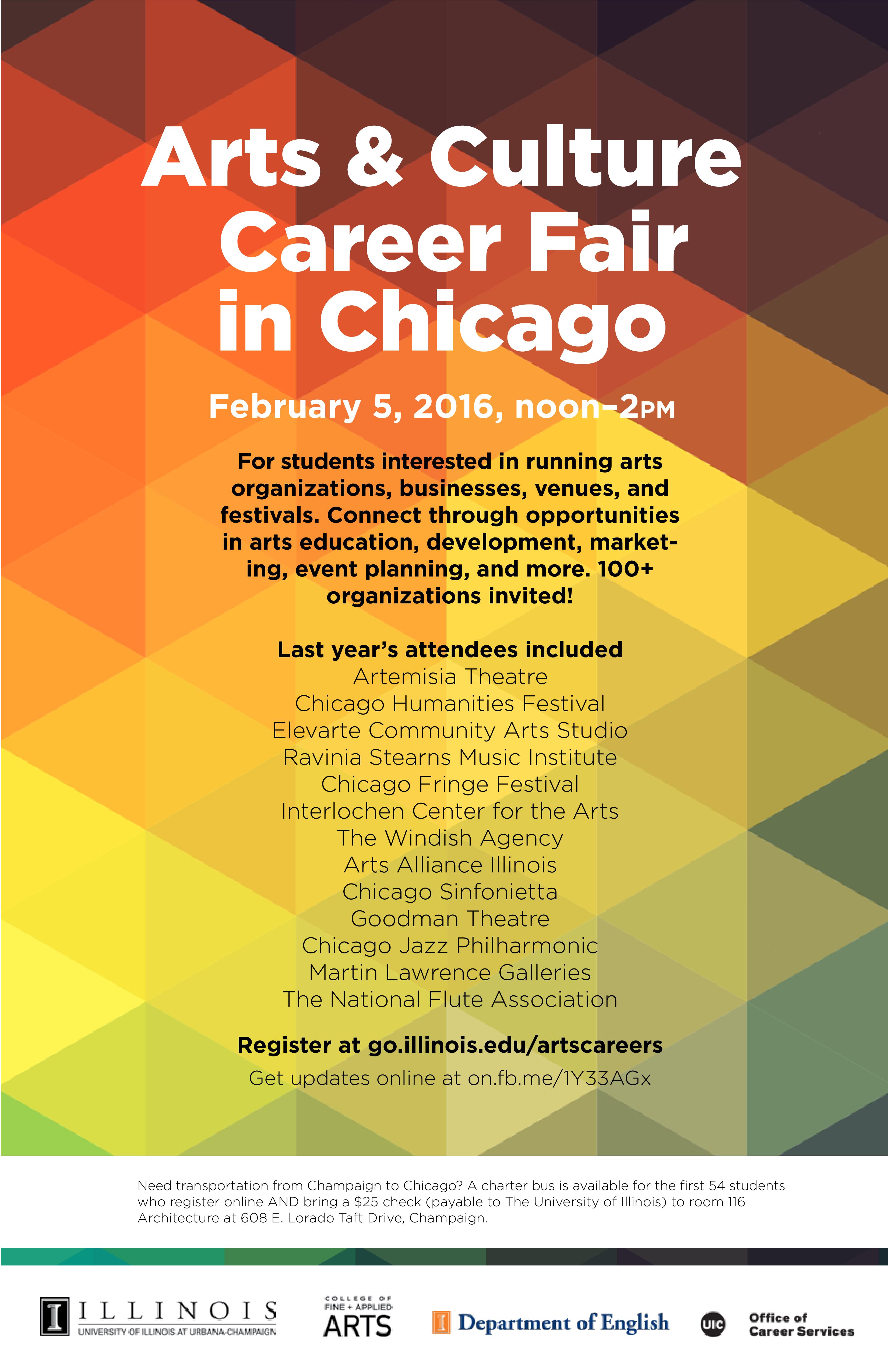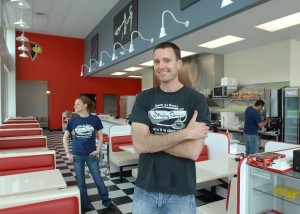 by Valerie O’Brien
by Valerie O’Brien
In his presentation for the Engl 199: Career Planning in the Humanities lecture series, Andrew Allen, Director of Illinois Business Consulting, offered UIUC humanities majors a valuable piece of advice: networking is essential for getting a job.
On the surface, this advice may seem obvious. After all, “networking” has become a cultural buzzword that we hear all the time. Most college students probably recognize “networking” as an important part of professional development. Yet, despite the term’s prevalence, precisely what “networking” means and how one does it may remain a mystery to many students. What does “networking” actually look like?
Allen recommended that students begin networking through informational interviews, which are brief, low-stakes conversations with individuals about their careers. This networking practice can help you to develop a circle of professional contacts, to determine what career options are available to students with humanities backgrounds, and to narrow down that list of possible careers according to your personal interests.
To conduct an informational interview, follow these steps:
- Determine what professional field you’d like to know more about and who you already know within that field. It works best to start the networking process with a contact you already have – a relative, for instance, or a friend’s parent, or an alumnus you’ve been in contact with (perhaps through the English Department’s Alumni Mentoring Network).
- Get in touch with your contact to ask if he or she would be willing to talk with you for fifteen minutes about their career.
- Prepare a couple questions to ask your contact, but don’t simply read them – you want the exchange to feel conversational and natural. Let your contact talk about their job, what they do every day, what they enjoy about their field, and similar topics. Be respectful of your contact’s time, but also be aware that if the conversation is going well, it may last longer than the fifteen minutes you requested.
- At the end of the conversation, ask if your contact could put you in touch with one or two of their colleagues who might be willing to talk with you further about their careers. It’s best if your contact emails their colleagues to make the introduction. However, if instead you’re going to be sending the email, be sure to ask your contact if you can mention them as a means of introducing yourself.
- After the informational interview, follow up with your contact to thank them for their time. If you want to stay in touch with the contact, you might connect with them on LinkedIn, but you should always either send a courteous personal message when adding them as a connection or ask them about connecting on LinkedIn near the end of the informational interview.
Eventually, the connections you make through conducting informational interviews could lead to a job offer, since, as Allen observed, “companies would rather hire someone they know than a sheet of paper.” It will likely take a lot of phone calls for this to occur, but in the process you can learn a lot about what you’re looking for in your future career.
Networking will require intentionality and time. And it’s important to start early and network regularly! Make this practice a part of your regular routine: Allen recommended trying to conduct an informational interview once or twice a week. It’s also important to start networking long before you’re getting ready to graduate: it’s never too early to begin thinking about possible career paths, especially because as an English or Creative Writing major you have so many options available to you!
 Why do thieves rob banks? Because that’s where the money is. Why hold the Arts and Culture Career Fair in Chicago? Because that’s where the art and culture is.
Why do thieves rob banks? Because that’s where the money is. Why hold the Arts and Culture Career Fair in Chicago? Because that’s where the art and culture is.

 The good news: you don’t need a business degree to run your own business successfully. In fact, as we learned yesterday, Tony Pomonis (English ’02), former owner and manager of the local chain of Merry-Ann’s Diners, failed out of the business school before reviving his college career with courses at Parkland and re-enrolling at UIUC. Not only is a business degree unnecessary for small-business success, argues Pomonis–a humanities degree equips you more directly with the skills that lead to success: curiosity, a willingness to take risks, the ability to interact with people and learn from them, first-rate communication and problem-solving skills.
The good news: you don’t need a business degree to run your own business successfully. In fact, as we learned yesterday, Tony Pomonis (English ’02), former owner and manager of the local chain of Merry-Ann’s Diners, failed out of the business school before reviving his college career with courses at Parkland and re-enrolling at UIUC. Not only is a business degree unnecessary for small-business success, argues Pomonis–a humanities degree equips you more directly with the skills that lead to success: curiosity, a willingness to take risks, the ability to interact with people and learn from them, first-rate communication and problem-solving skills. my a** off” with alarming regularity in the hour that he spoke about his experiences. He recounted months of trading 12-hour shifts with his business partner, years of working without a vacation day. Hard work for Pomonis hasn’t just meant flipping pancakes with as much speed and finesse as the line cooks he hires (though that is key!), it has also involved
my a** off” with alarming regularity in the hour that he spoke about his experiences. He recounted months of trading 12-hour shifts with his business partner, years of working without a vacation day. Hard work for Pomonis hasn’t just meant flipping pancakes with as much speed and finesse as the line cooks he hires (though that is key!), it has also involved But: You might not want to. Small-business success comes at the cost of family life. Pomonis frankly owned up to the trade-offs: he made a lot more money running Merry-Ann’s than he does in his current position with LAS advancement at the University of Illinois, but his new job gives him time and energy to be with family. In his view, there is no contest: “I am infinitely richer” he says, for being able to spend his evenings and weekends at home with his wife and children, without the constant stress of a 24-hour business requiring his attention.
But: You might not want to. Small-business success comes at the cost of family life. Pomonis frankly owned up to the trade-offs: he made a lot more money running Merry-Ann’s than he does in his current position with LAS advancement at the University of Illinois, but his new job gives him time and energy to be with family. In his view, there is no contest: “I am infinitely richer” he says, for being able to spend his evenings and weekends at home with his wife and children, without the constant stress of a 24-hour business requiring his attention. Pomonis maintains a stake in the business, however, and continues to cook at one of his diners the three busiest weekends of the year–one of which is coming up. You’ll find him on Sunday, Nov. 15, at the Merry-Ann’s in downtown Champaign from 8 to 2.
Pomonis maintains a stake in the business, however, and continues to cook at one of his diners the three busiest weekends of the year–one of which is coming up. You’ll find him on Sunday, Nov. 15, at the Merry-Ann’s in downtown Champaign from 8 to 2.
 by Valerie O’Brien
by Valerie O’Brien